
If you’ve ever shipped a package internationally, you’ve probably run into the same question: UPS or FedEx? When it comes to customs, that choice matters more than you might think.
Both carriers offer customs clearance services, but the way they handle paperwork, fees, delays, and delivery speed varies. And for eCommerce sellers or anyone trying to avoid costly surprises, those differences can impact your bottom line or your customer’s satisfaction.
This guide breaks down how UPS and FedEx handle customs for international shipments. We’ll look at how each manages documentation, how much they charge in fees, how fast they move packages through customs, and how reliable they are in getting deliveries across borders.
Jump right in: UPS vs FedEx Customs
- UPS vs FedEx Customs: Which One’s the Better Choice?
- How UPS and FedEx Handle Customs Clearance
- Duties, Taxes, and Brokerage Fees: What You’ll Pay with UPS vs FedEx
- Delivery Times and Customs Delays: Which Carrier Moves Faster?
- Customs Fees, Regions, and Special Considerations
- FAQs
- Conclusion: Choosing the Right Carrier for International Shipping
UPS vs FedEx Customs: Which One’s the Better Choice?
Both UPS and FedEx offer strong customs handling, but your decision should come down to what matters most to you speed, consistency, cost, or support. Here’s how they stack up:
| Category | UPS | FedEx |
| Speed | Reliable with strong on-time stats. Great for consistent delivery times. | Faster for express services. Often clears packages before arrival. |
| Customs Process | Highly structured and integrated. Minimizes surprises. | Streamlined with strong global clearance teams. Emphasizes speed. |
| Brokerage Fees | Higher, especially for ground shipments. Uses sliding scale based on value. | Lower and more predictable. Often flat-rate and waived for account holders. |
| Support During Delays | Proactive. Contacts shippers quickly and resolves documentation issues fast. | Responsive. May allow delivery before collecting duties to keep things moving. |
| Best For | Sellers who value consistency, structure, and long-term logistics support. | Sellers who need speed, simpler billing, or ship sensitive items globally. |
As the table highlights, UPS and FedEx each have strengths in customs handling. UPS is slightly more “by the book” with costs and procedures (which can mean higher fees but fewer surprises), whereas FedEx is slightly more “flexible and fast” (which can mean quicker deliveries and sometimes lower fees, especially on economy shipments).
How UPS and FedEx Handle Customs Clearance
Both UPS and FedEx take care of customs clearance for you. They act as customs brokers, meaning they prep the documents, deal with border agencies, and help ensure your shipment complies with international regulations. But they don’t go about it the same way.
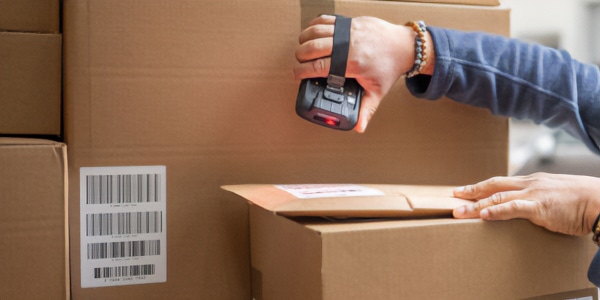
UPS: Built for Structure and Simplicity
UPS leans into process and efficiency. Their in-house brokerage team, part of UPS Supply Chain Solutions, handles most of the heavy lifting. They use tools like UPS Paperless® Invoice to let you submit commercial invoices and other documents electronically meaning no printing & no hassle.
One standout feature? UPS lets you calculate duties and taxes during shipment creation or even at checkout for online orders. That means fewer surprises for your customer when the box shows up. Their focus is clear: reduce errors upfront, keep paperwork tight, and prevent delays before they happen.
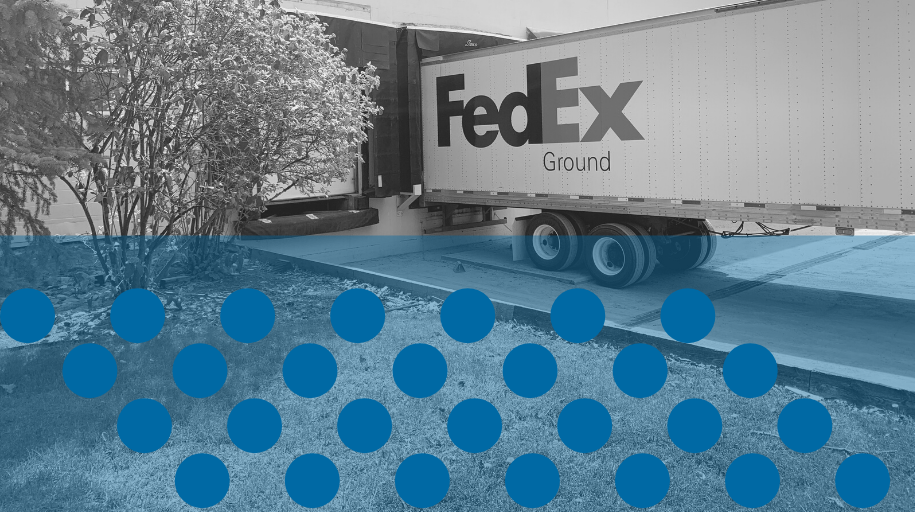
FedEx: Speed and Hands-On Support
FedEx comes from an express delivery background, and it shows. Their global infrastructure supports fast customs clearance, especially for priority shipments. Like UPS, they offer digital document submission through their Electronic Trade Documents (ETD) system. But FedEx often takes it a step further.
They have dedicated customs support teams who walk you through requirements if anything goes sideways. That extra layer of service, someone actually guiding you if forms are missing or details need correction, can save serious time. FedEx also sends customs information ahead of the shipment’s arrival, which helps speed things up once it hits the border.
What They Both Do (But Differently)
In practice, both companies handle the same core steps:
- Prep customs documents (invoices, declarations, etc.)
- Send data to border agencies
- Pay duties/taxes up front, then bill you or the recipient
- Make sure your shipment meets country-specific regulations
The difference lies in how smooth that process feels. UPS prioritizes integration and predictability. FedEx leans on speed and support. For example, FedEx International Priority is built to deliver globally in 1–3 days with fast clearance baked in.
UPS, meanwhile, is known for reducing the friction of customs. It’s not always faster, but it’s often more consistent. So, if you’re choosing between them, ask yourself: do you want speed, or do you want structure?
Duties, Taxes, and Brokerage Fees: What You’ll Pay with UPS vs FedEx
When shipping internationally, duties and taxes (like VAT or GST) are set by the destination country, not the shipping carrier. So whether you use UPS or FedEx, those government-imposed charges stay the same. What differs, sometimes a lot, is how much each carrier charges to process customs paperwork. That’s where brokerage fees come in.
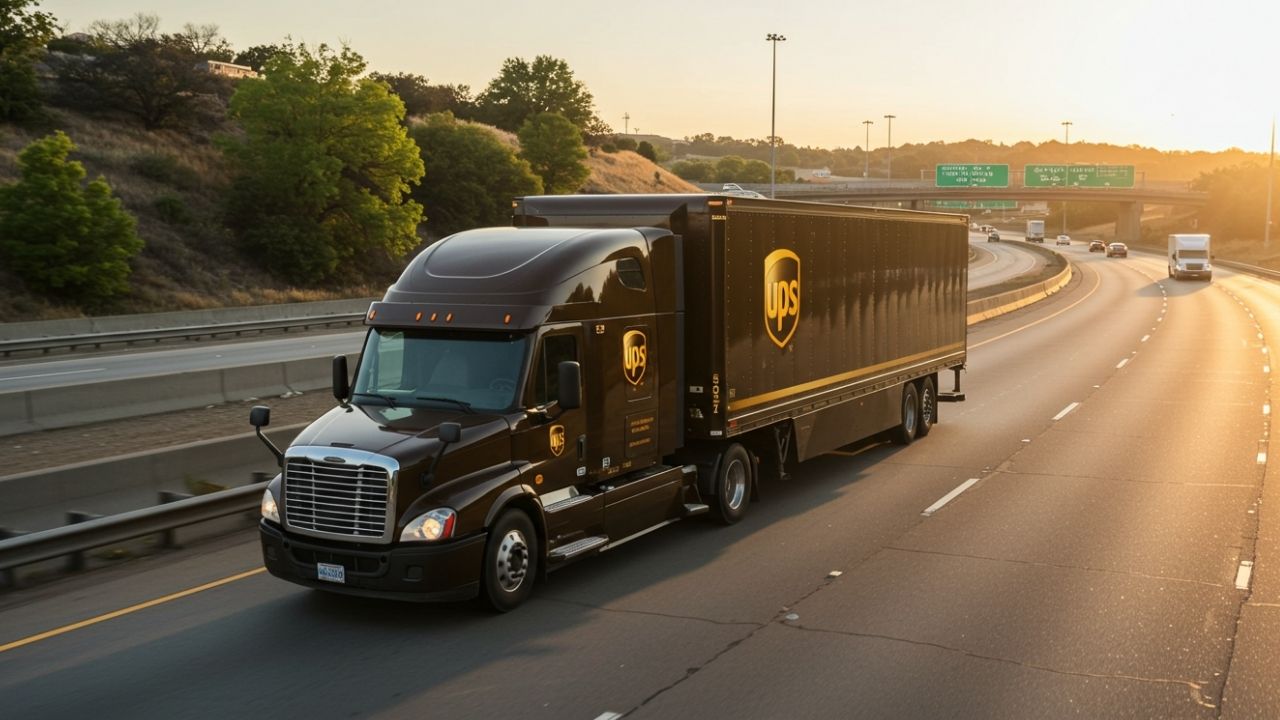
UPS Fees: Higher, Especially for Ground
UPS includes customs brokerage in its express services like UPS Worldwide Express. That means if you’re paying a premium for fast delivery, you won’t get hit with a separate customs fee.
But with UPS Ground or services like UPS Standard to Canada, it’s a different story. Here, the brokerage fee is based on the declared value of the shipment. The more your item is worth, the more you pay. For example:
- A lower-value item might trigger a fee of around $20 to $30
- A higher-value package could push the fee to $50 or more
UPS might also charge a disbursement or advancement fee. This is a percentage (usually with a $10 minimum) for paying the import taxes on your behalf before collecting from you. If you don’t factor these in ahead of time, the charges can feel like they came out of nowhere. That’s why UPS recommends using their online duty calculator during the label creation process.
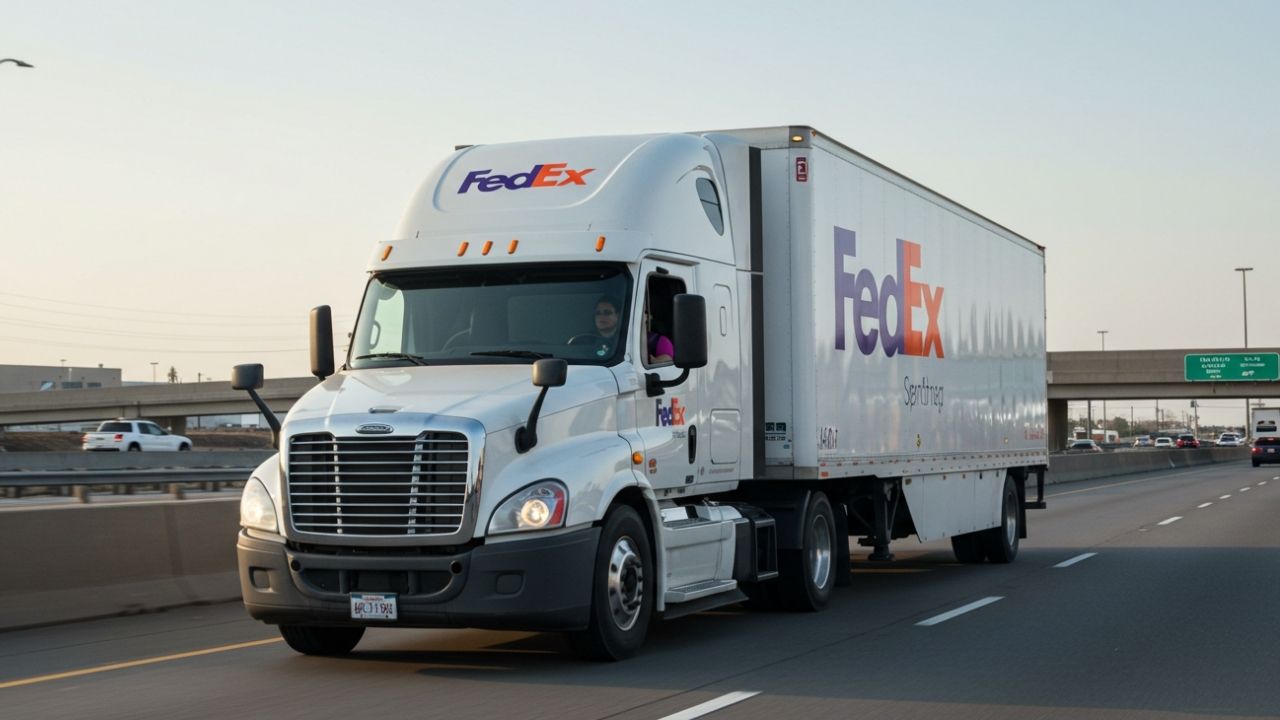
FedEx Fees: Lower and More Predictable
FedEx tends to keep things simpler. Express international services come with brokerage included, similar to UPS. But for economy or ground options, FedEx usually charges a flat fee, often between $10 and $20, regardless of package value.
Here’s where it gets more appealing for frequent shippers: if you have a FedEx account and choose to bill duties to that account, they often waive the brokerage fee entirely. One user reported being charged $19.95 for a package to Canada, but that fee was removed because it was billed to a FedEx account.
FedEx also charges a disbursement fee when paying duties up front. In Canada, this might be around $10. Still, FedEx’s overall approach tends to feel more transparent. You know what you’re paying, and you’re less likely to get surprised by hidden fees.
The Express vs Ground Divide
Both carriers handle express shipments similarly. You pay more upfront for faster service, but it includes customs clearance. No extra invoices, no extra work.
Ground shipping is where fees stack up. The base shipping rate is lower, but you’ll usually get a bill for customs brokerage after the fact. You can choose to self-clear to avoid the charge, but most people let the carrier handle it to avoid the hassle. UPS or FedEx will hold the package until fees are paid or documentation is provided.
One Reddit user summed it up well: “Brokerage isn’t included with ground services. If the courier clears the package, they’ll charge you. You can ask to self-clear, but they’ll hold the shipment until you provide clearance paperwork.” Most recipients skip that step and just pay the fee.
For a step by step overview of international fulfillment from the U.S., see our international fulfillment guide.
Ship Orders Effortlessly!
Delivery Times and Customs Delays: Which Carrier Moves Faster?
International shipping can feel like a race against the unknown. You might pay for overnight delivery, but then your package gets stuck in customs for days. That’s why it’s important to look at how UPS and FedEx handle clearance delays and what kind of speed you can actually expect.
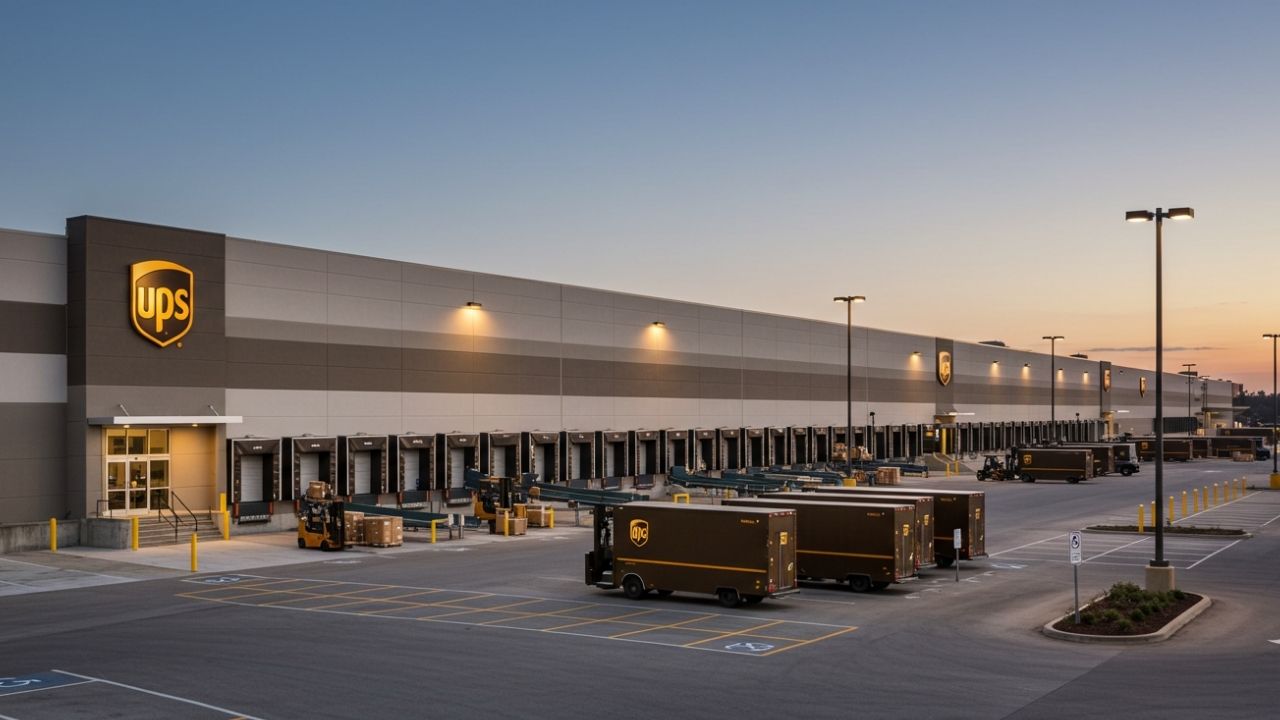
UPS: Built for Consistency
UPS is known for being dependable. Their integrated network keeps things tight, with fewer handoffs between air and ground.
-
Major hubs like Louisville (KY) and Cologne (Germany) often pre-clear shipments while still in transit.
-
This cuts down the time spent sitting in customs after arrival.
-
Even during peak season, UPS kept over 96% of deliveries on time in 2024.
Customs delays are rare if documents are clean. Still, if you’re racing the clock, FedEx might edge ahead.
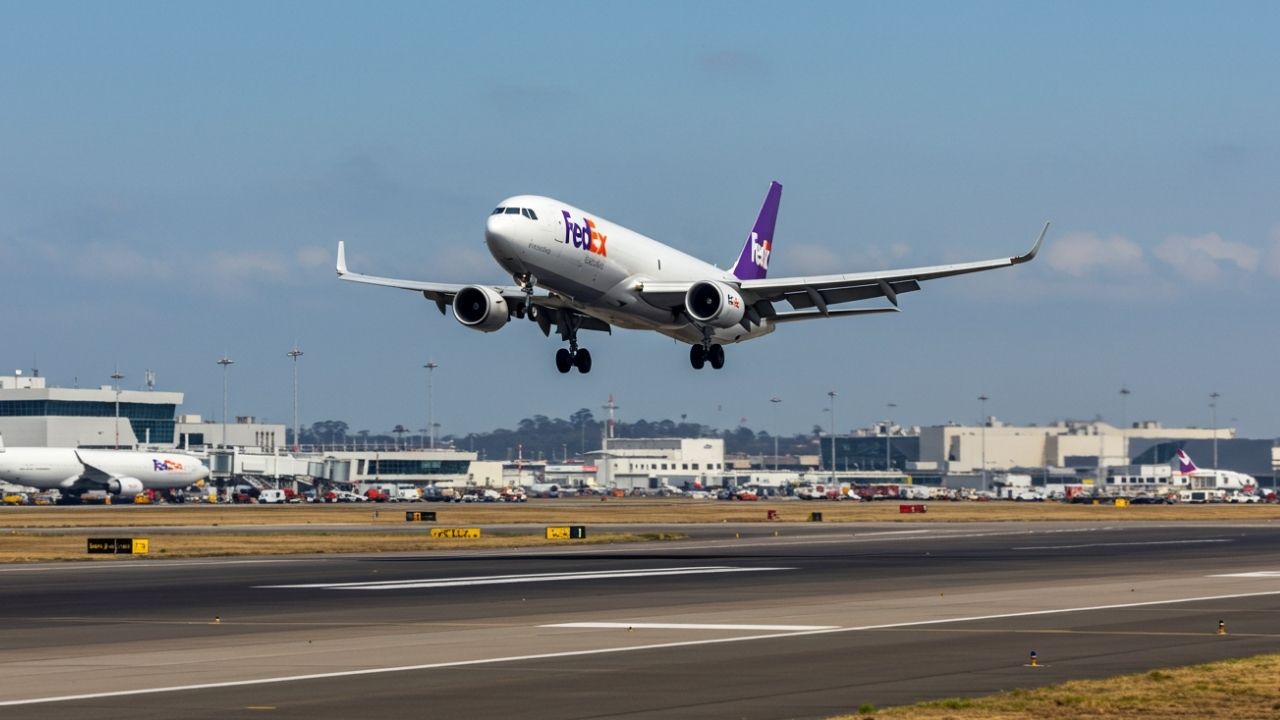
FedEx: Speed, Especially When It Counts
FedEx is built for fast. Everything about their system air fleet, electronic pre-clearance, 24/7 customs staff is designed to move packages quickly.
With FedEx International Priority, customs paperwork is submitted while the package is still in the air. That way, delivery can happen almost as soon as it lands.
FedEx also offers:
-
Special clearance programs for regulated exports
-
Additional support for time-sensitive items (like medical or high-security goods)
For lower-tier services (like economy or ground), though, expect similar delays to UPS if documentation is missing or incomplete.

Customs Delays Happen, Here’s How Each Carrier Responds
No carrier can fully prevent customs delays. Random inspections, unclear item values, or missing paperwork can trip up any shipment.
But when things go sideways, both carriers respond well.
-
UPS often contacts the shipper or recipient quickly, asking for tax IDs or missing info. Their local teams help clear things up.
-
FedEx does the same, and sometimes allows delivery while paperwork is still being processed.
That flexibility from FedEx can save a day or two—especially if the package is already en route.
Which One’s More Reliable?
It depends on what you need:
-
FedEx is often the fastest for international express. Their system is designed for urgency.
-
UPS tends to win on predictability. If you want to avoid surprises and keep things steady, it’s a safer bet.
A lot of eCommerce sellers use both. FedEx for overnight. UPS for everything else.
Customs Fees, Regions, and Special Considerations
Customs policies aren’t universal. Where you’re shipping affects how much you pay, how long clearance takes, and how UPS or FedEx handles the process. Here’s what to expect in some of the most common international lanes.
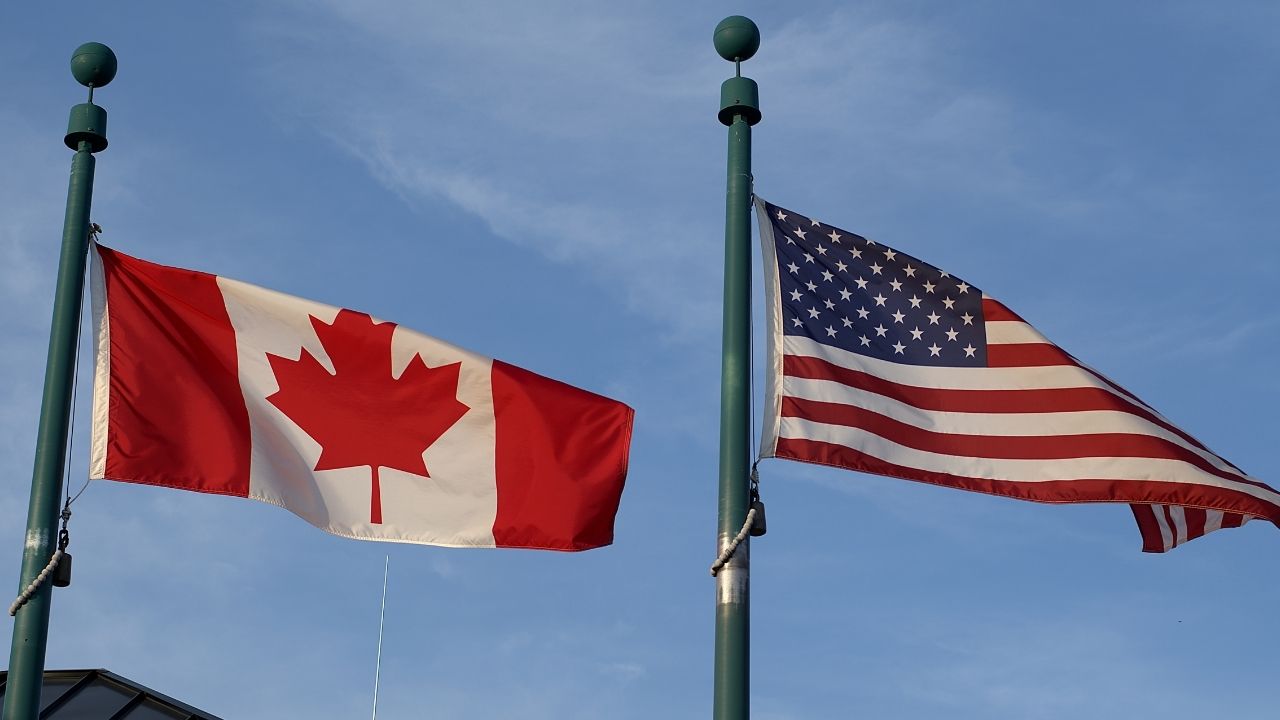
Shipping from the U.S. to Canada
This is where fee differences become obvious, especially with ground services.
UPS Standard (Ground):
- Brokerage fees are based on shipment value
- Fees commonly range from $30 to $50 CAD
- Advancement fees may also apply
- Canadian customers often report frustration with unexpected costs
FedEx Ground:
- Flat clearance fee, often $10 to $20 CAD
- Brokerage fee can be waived if billed to a FedEx account
- Less likely to generate surprise charges for recipients
Delivery Speed:
- Comparable for ground services (a few days)
- Both use electronic customs clearance
- Express services from either carrier include customs and move faster
Bottom line: FedEx Ground is often better for low-value items when you’re trying to avoid upsetting your Canadian customers with extra fees.
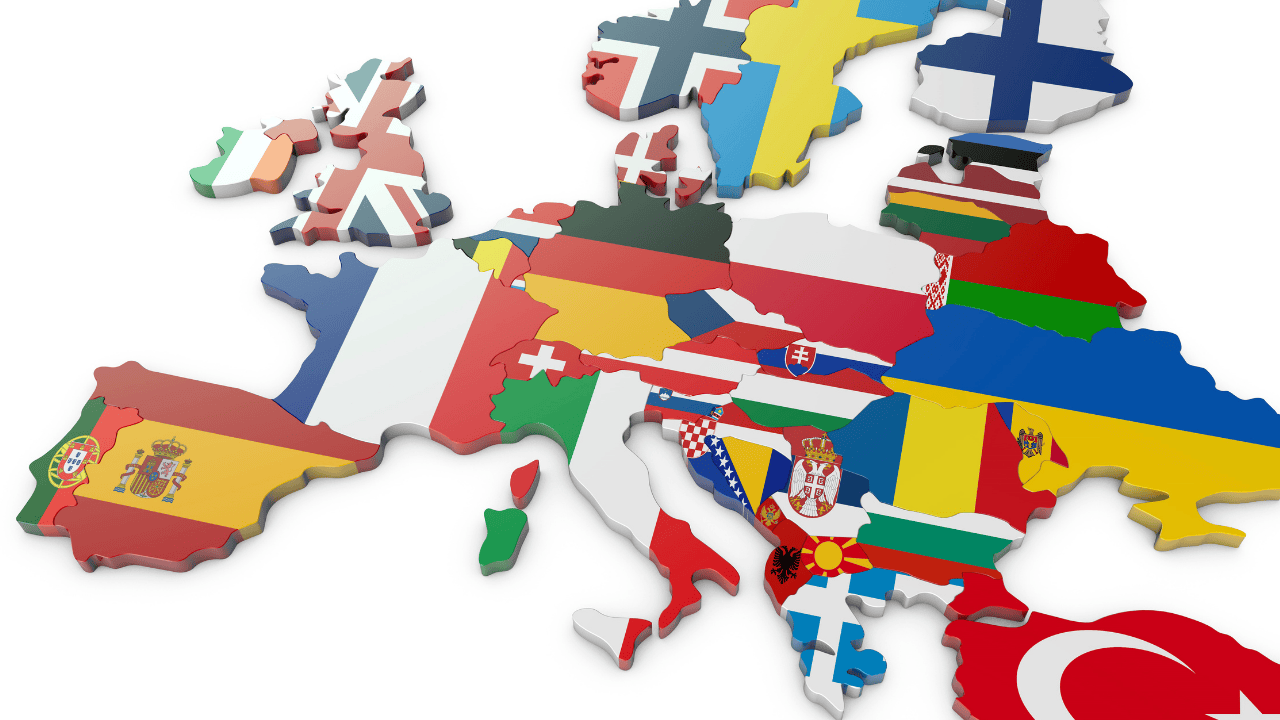
Shipping to Europe and the UK
Both carriers have strong infrastructure and operate major clearance hubs:
- UPS: Cologne, Germany
- FedEx: Paris, France
What stays consistent:
- VAT and duties apply to both carriers equally
- Clearance is typically done at a single EU gateway
- Delivery to final countries happens by truck or air
Customs Fees:
- Similar across both carriers
- Expect disbursement or clearance fees around €10 to €15
- No dramatic differences like you see with Canadian ground shipping
If speed matters: FedEx might get to remote areas faster thanks to its global flight network, but both are dependable for European shipments.
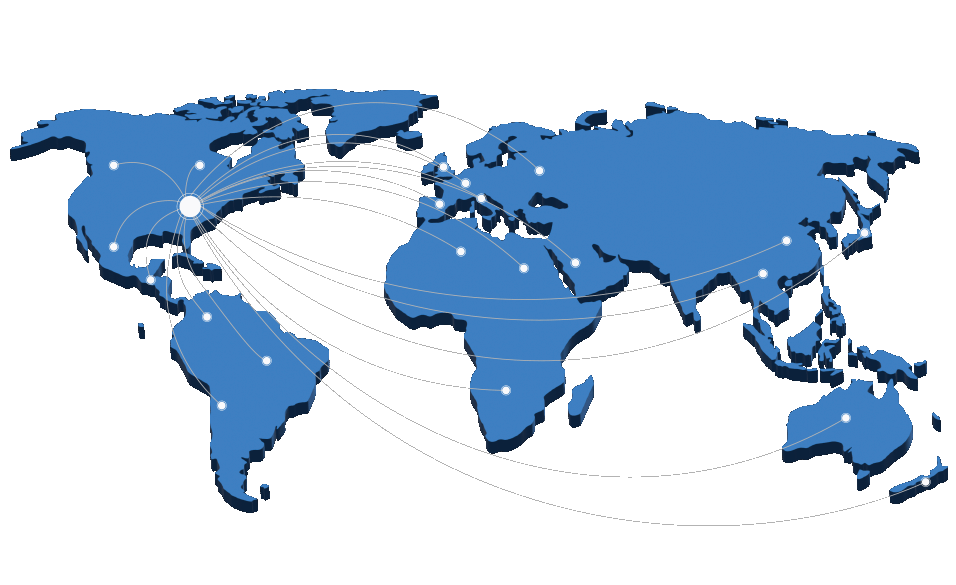
Shipping to Asia, Latin America, and Other Regions
These regions are more complex. Documentation can be strict and vary by country.
Common customs requirements:
- China: Receiver’s ID number
- India: KYC documents
- Other countries may require invoices in specific formats or proof of origin
FedEx strengths:
- Deep roots in Asia, especially China
- Often manages clearance in-house for faster handling
- Offers special services like:
- SenseAware: For high-value or temperature-sensitive shipments
- Controlled Export Services: For regulated goods
UPS strengths:
- Strong local partnerships and brokerage networks
- Good for bulk or complex shipments needing reliability
- Can pass clearance to local agents if needed, but maintains quality oversight
Customs Support When There’s a Hold-Up
No matter the carrier, sometimes customs holds packages. Here’s how they compare in support:
UPS:
- Offers 24/7 international support
- Often requires duty payment before releasing a package
- Proactively contacts shipper or recipient for missing paperwork
FedEx:
- Also offers 24/7 customs support
- Sometimes delivers the package first and bills duties later
- Helpful when speed matters and the customer expects quick delivery
Both provide:
- Help classifying products (like assigning HS codes)
- Guidance on country-specific regulations
Access to online documentation tools and phone support
FAQs: UPS Vs FedEx Customs
Does UPS or FedEx clear customs faster?
FedEx is usually faster for time-sensitive shipments thanks to its global air network and electronic customs processing. UPS is still fast but tends to focus more on reliability and process control.
Which carrier has lower brokerage fees?
FedEx typically offers lower and more predictable fees, especially for ground shipments. UPS often charges a sliding fee based on item value, which can add up if not prepaid.
Can I pay duties in advance with UPS or FedEx?
Yes. Both let you bill duties and taxes to the shipper (DDP) or the recipient (DDU). Prepaying can help avoid delivery delays and improve the customer experience.
What happens if a package gets stuck in customs?
Both UPS and FedEx will contact the shipper or recipient if paperwork is missing or extra info is needed. FedEx may still deliver and sort billing later, while UPS often waits for payment before releasing the package.
Is one better for shipping to specific regions?
FedEx is strong in Asia and for remote or complex export routes. UPS excels in North America and Europe, especially where ground infrastructure and customs paperwork play a bigger role.
What does “Item Returned from Import Customs” mean?
"Item Returned from Import Customs" usually means customs finished review and handed your parcel back to the carrier for final delivery. Learn more in our full guide.
Simplify Order Shipping with a 3PL!
Conclusion: Choosing the Right Carrier for International Shipping
There’s no one-size-fits-all answer here. Both UPS and FedEx are excellent at what they do, but they serve slightly different needs.
- Choose UPS if you want structure, consistency, and more control over customs documentation and duties.
- Choose FedEx if speed, flexibility, or simplified billing makes a bigger difference to your business.
Most experienced shippers keep accounts with both and switch based on region, urgency, or customer expectations.
Key Takeaways
- UPS: Great for predictability, helpful tools for duty estimation, stronger structure for bulk or heavy shipments.
- FedEx: Ideal for fast delivery, easier customs fees, and international express shipments.
- Ground services: Expect brokerage fees unless prepaid. FedEx often charges less.
- Customs delays: Both handle them well, but FedEx is more likely to deliver first and settle payment later.
- Documentation matters: Accurate forms, values, and item descriptions can prevent delays with either carrier.
Need Help With International Fulfillment?
At eFulfillment Service, we help ecommerce sellers ship worldwide without the stress. We integrate with UPS, FedEx, USPS, and others to give you flexibility and transparency. No setup fees. No long-term contracts. And no surprises at customs.
Our team works with you to make sure your products reach customers on time—whether you’re shipping beauty products to Canada or auto parts to Europe.
Want to see how we can help?
If you want a partner to handle customs and shipping, review our international fulfillment services.


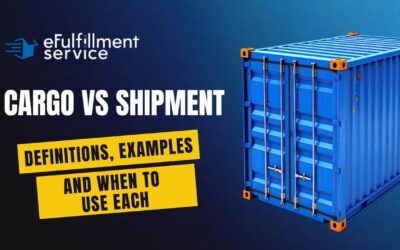

0 Comments